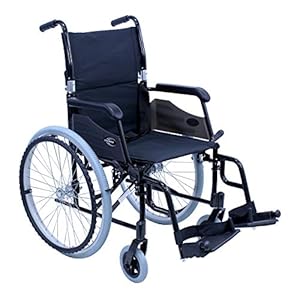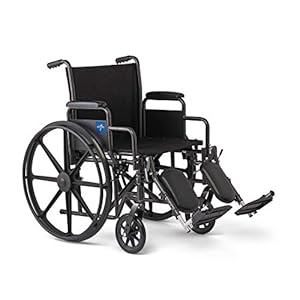
After surveying the views expressed by 41 advocacy, medical, and transplant-focused organizations on the Uniform Dedication of Demise Act, a mind damage skilled is asking for much-needed reforms to the authorized definition of demise in the US. The lately introduced pause by the Uniform Legislation Fee, which is spearheading revisions, is disappointing, the skilled notes, however shouldn’t completely stall sensible fixes to longstanding issues with the Demise Act.
“This examine exhibits that almost all medical organizations help revisions of the Uniform Dedication of Demise Act to align the authorized description of the neurological standards for demise with medical requirements,” mentioned Ariane Lewis, MD, a neurocritical care specialist and professor within the Departments of Neurology and Neurosurgery at NYU Grossman College of Medication.
Particularly, Lewis argues, the authorized description for demise must mirror medical pointers, which don’t require that lack of hormone operate be thought of when declaring somebody mind lifeless. Furthermore, Lewis says, the Demise Act must be revised to incorporate authorized steering for well being care suppliers about what to do when a household objects to stopping mechanically assisted respiratory for a relative who’s already mind lifeless. The act, for instance, must make clear when and for a way lengthy, if not indefinitely, an individual could be stored on a ventilator after mind demise if a household objects to it being eliminated.
Lewis says her survey outcomes confirmed that 34 organizations (83%) favored revisions to the Demise Act. Nonetheless, she acknowledges that views about methods to revise it diverse. Some spiritual organizations and affected person advocacy teams had been against utilizing lack of mind operate as a standards for declaring demise, favoring as a substitute the normal definition of demise as having occurred after the center stops beating.
Lewis, who additionally serves as director of neurocritical care at NYU Langone Well being, has already shared her survey outcomes and perspective with the fee, whose work to amend the Demise Act was suspended in late September. Lewis has been certainly one of 100 observers working with the fee for the previous three years on revisions to the statute.
Publishing within the journal Neurocritical Care on-line Oct. 25, the examine concerned an in depth evaluation of the feedback and viewpoints submitted to the fee between January and July 2023 by 41 organizations impacted by the Demise Act.
Traditionally, an individual was thought of lifeless when their coronary heart stopped beating they usually might now not breathe on their very own. Technological advances in mechanical air flow modified that, permitting individuals, in some instances, to maintain respiratory after they’d suffered catastrophic mind accidents resulting in coma, and had misplaced the nerve operate wanted for them to breathe on their very own. Such instances led in 1981 to the U.S. Uniform Dedication of Demise Act, which outlined demise as both the irreversible cessation of all mind or cardiopulmonary capabilities. This definition was adopted by all American states because the authorized foundation for declaring an individual lifeless.
The act, nevertheless, didn’t specify the medical exams wanted to find out if somebody was lifeless. Moreover, a small variety of states permit households to voice objections on spiritual grounds. This contains some Orthodox Jews, Muslims, and Catholics who equate withdrawal of mechanical air flow to euthanasia, even after an individual has been declared mind lifeless. Dozens of lawsuits have been filed in opposition to healthcare services by households wishing to maintain a relative, who has already been declared mind lifeless, on mechanical air flow indefinitely.
Citing the necessity for extra authorized steering for physicians, Lewis is asking on the fee to simply accept worldwide and nationwide medical requirements for demise by neurological standards. Amongst these are pointers printed by the American Academy of Neurology, Society of Essential Care Medication, American Academy of Pediatrics, and Youngster Neurology Society, none of which require the lack of hormone operate when declaring somebody mind lifeless.
Lewis factors out the lack of “all capabilities of all the mind,” which might additionally cowl cessation of hormone secretion, is included within the act’s definition of demise. Nonetheless, such lack of hormone operate will not be wanted to be declared lifeless by mind standards utilizing present medical requirements.
The Demise Act’s definition, Lewis argues, will not be solely too broad, however it’s also impractical as a result of there’s at the moment no medically established normal for measuring whether or not and when hormone secretion from the mind has stopped. Thus, she says, the act must be clarified to specify what mind capabilities should be misplaced with the intention to declare somebody legally lifeless, recognizing that lack of hormone secretion shouldn’t be among the many standards.
One other examine discovering was that affected person advocacy teams favored revisions to the act that require household consent earlier than discontinuing mechanical air flow after an individual is said lifeless. Medical organizations, Lewis says, are against this place.
“The outcomes of this survey present that whereas stakeholders help revisions to the Demise Act, medical organizations and affected person advocacy teams are deeply divided on the method to do that,” mentioned Lewis. With prospects for consensus slim and the fee’s efforts paused consequently, Lewis concludes that “with out revisions to the regulation, it stays unclear what exams are required for declaring somebody mind lifeless, and physicians and the general public wouldn’t have authorized steering about methods to resolve conflicts when households object to demise by mind standards.”
Trending Merchandise










![[2025 Upgrade] Aotedor 30 Miles Long Travel Range, Electric Wheelchair for Adults Power Wheelchairs Lightweight Foldable All Terrain Motorized Wheelchair for Seniors Compact Portable Airline Approved](https://m.media-amazon.com/images/I/51vZJPDMrOL._SS300_.jpg)
